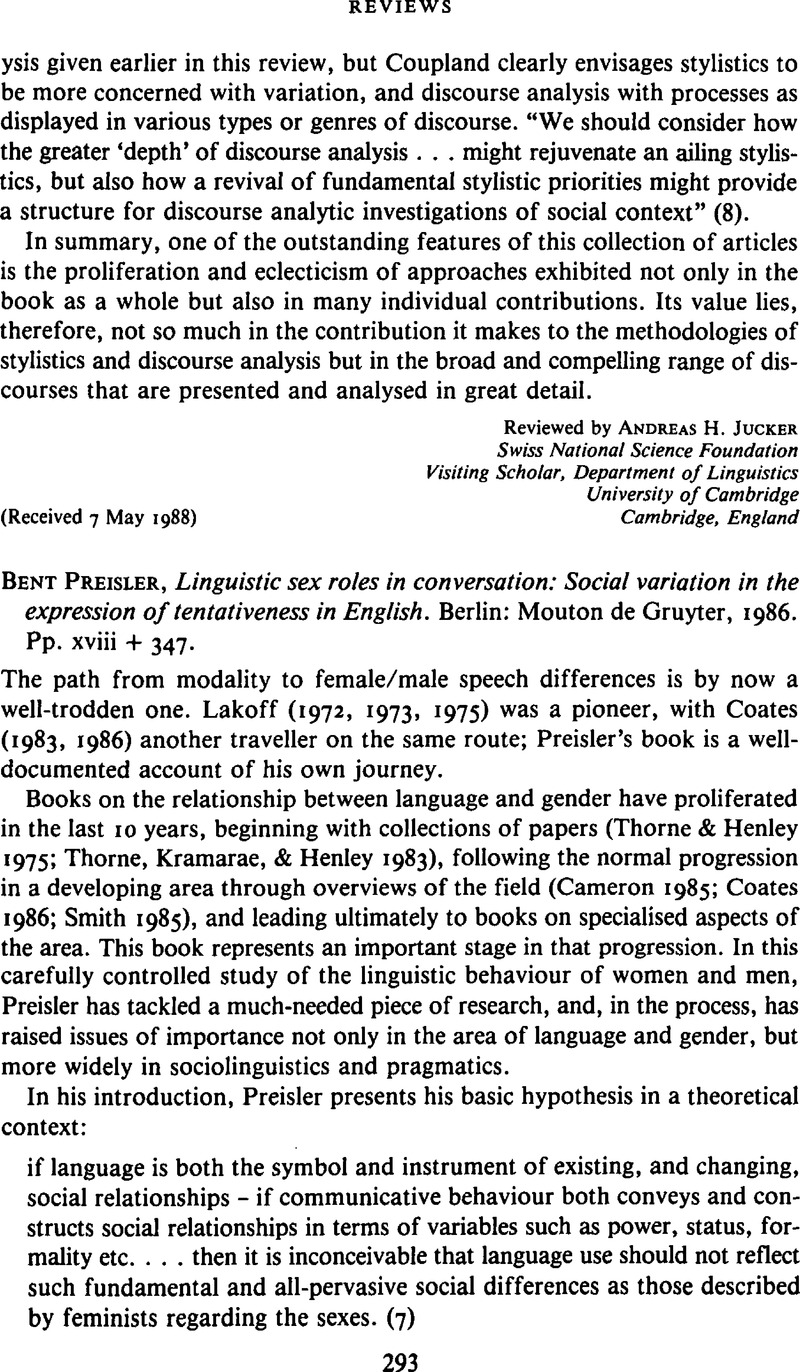Crossref Citations
This article has been cited by the following publications. This list is generated based on data provided by Crossref.
Buchstaller, Isabelle
2009.
The Quantitative Analysis of Morphosyntactic Variation: Constructing and Quantifying the Denominator.
Language and Linguistics Compass,
Vol. 3,
Issue. 4,
p.
1010.



